Canada’s ground transportation industry combines 3 different modes. Rail, trucking and pipeline (for oil and gas). They are an essential and integral part of the Canadian economy. An efficient and effective transportation system makes life easier and more affordable for us all and is an important part of our quality of life and sustainability as a nation. The global economy is ruled by the law of the jungle, the strong survive. Which means a healthy transport system is essential for Canada’s wellbeing and place in the global marketplace.
At the writing of this article Canada’s freight train system has come to a grinding halt due to blockades by our indigenous peoples. Although trucking and train freight serve different market places, there are similarities too. Canada’s train freight system moves many bulk goods that tie into import and export at Canada’s ocean port terminals. According to Canada’s Rail Association, trains are the key to the inexpensive and safe transport of minerals, fuel, chemicals, agriculture and forestry products. Additionally intermodal or container shipping is also a key component. Closing down the rail system has quickly brought Canada’s economic wheel to a halt and although the trucking industry would love to take advantage of the opportunity to move more goods, the shutting down of the rail system may actually do more harm than good to trucking as well. Let’s see why.
Canada’s railways played an integral role in the building of our nation. Trains helped in the process of industrialization, opening up new markets and tying regions together, while at the same time creating a demand for resources and technology. Railways helped encourage settlement in the west and helped in the establishment of Confederation and the creation of Canada, an enormous country with poor roads and waterways that were frozen up for 5 months every year. Without that rail system coming into place we could easily say that Canada would not have become connected and it is dubious it would ever have become a nation. Population growth and the ensuing economic development and the creation of markets and industry would have been stymied too. The wealth and diversity and the very economic wheel that drive’s the trucking industry and this country would not exist today without our railway system.
The breakthrough for trucking came through during WW2. Canada’s transportation system became overburdened due to the overwhelming demand for raw materials and manufacture products, airplanes, vehicles and ships etc. This meant that a new infrastructure for transport was needed quickly, much quicker than new railways could be created. It was then that the trucking industry in Canada was declared an essential industry to the war effort by the federal government. Trucking became a key industry overnight, it was dependable and flexible. Opportunistically the trucking infrastructure was already in place to handle the post war boom and soon a highway system was developed that helped enable further growth. Our country’s population has tripled from 12 million in 1945 to over 37 million today. The benefits to trucking and railways are obvious.
As we move into the 21st Century we have 2 important ground transportation systems that move freight. The flexibility that trucking provides and the diversity of the road system means that the truck industry is more adaptable and convenient. The rail system though provides a cheaper alternative, especially for the transportation of bulk items that require low cost transport to be economically viable to the global marketplace.
The truth is that we need both systems as they benefit each other. They both fuel our economic engine and are essential for further growth and the well being of the country and therefore a greater demand for transported goods. A lack of either is destabilizing to the present day and to Canada’s future. In fact it is a deterrent to economic growth and foreign investment in our country.
Although at first glance this shut down of the rail system might be seen as an opportunity for the trucking industry to make new inroads on market growth, that would be a short sighted viewpoint. It does however highlight a weakness in the rail system that up until now has not been exposed. Do we learn from these events? In an era of geopolitical, cultural and ethnic diversity and sensitivity do we make a choice for our aboriginal peoples to become more involved or even incentivized with our transport systems? It is, after all their land we travel over. Is this the new normal? It seems obvious that on a global and also national scale that diversity and inclusion will be more and more a part of corporate thinking. Is this an opportunity for the trucking industry to get in front of the wave?
